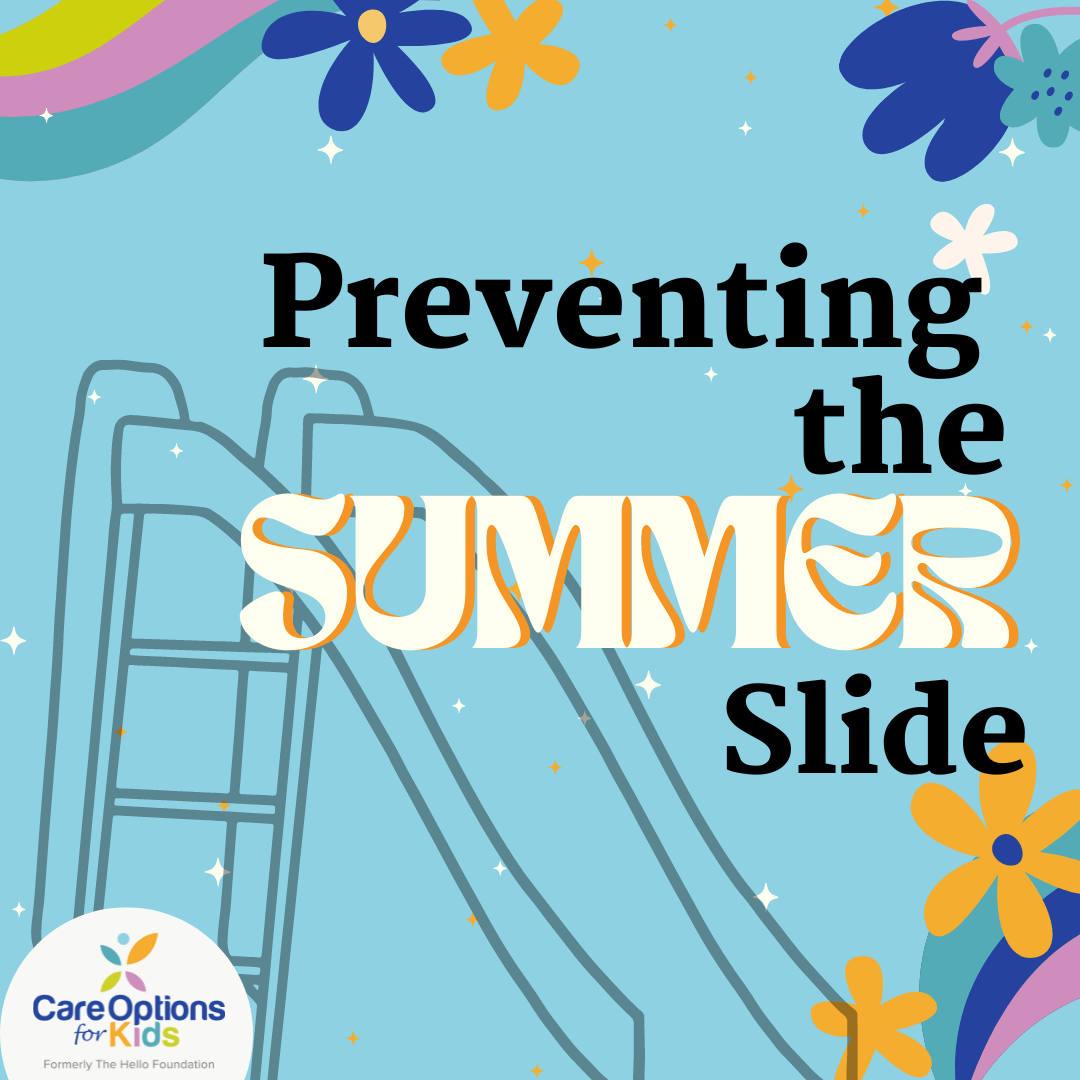Can you hear that? It’s the giant ticking clock counting down the days, hours, minutes, and seconds until school is out for summer. While summer brings pool days and BBQs, it unfortunately also brings academic regression for many students. This “summer slide” is all too common. Students typically score lower on standardized tests at the end of summer vacation than at the beginning (White, 1906; Heyns, 1978; Entwisle & Alexander, 1992; Cooper, 1996; Downey et al., 2004), losing about 20 percent of their reading growth and 27 percent of their math growth during summer break.
5 Strategies to Keep Speech-Language Skills Strong During Summer Break
Speech-language skills are not immune to these setbacks. In this post, we’ll provide five simple activities to make the most of the summer months and prevent the summer slide from derailing speech-language progress.
1. READ!
Reading during the summer might seem obvious, but it truly is one of the easiest ways to keep various skills sharp. Plenty of summer reading programs are available, making it a great time for kids to read whatever interests them. For a more structured approach, ReadWorks offers over 50 passages in their “SummerReads” section, which can be filtered by reading level, topic, and content type. The built-in comprehension questions at the end of each passage are excellent for enhancing comprehension skills. These passages are also great for vocabulary work (highlighting unknown or key words, making guesses, and confirming definitions), sequencing activities (retelling the story in order, cutting apart the story, and putting it back together), and even articulation practice (highlighting all the words with the target sound).
2. Do a Passion Project
Summer is the perfect time for Project-Based Learning (PBL). Essentially, PBL involves doing projects and integrating learning objectives into them. During summer, students can be encouraged to pursue their passions, and we can incorporate speech-language support into their explorations. For example, if a child is fascinated by king cobras and has a language goal for sequencing, PBL would involve researching the cobra’s life cycle (online, at the library, zoo, etc.), then printing or drawing pictures of the life cycle to practice sequencing. They could then call Grandma to explain the life cycle, write about it, create an animation, or build it with LEGO—whatever they are passionate about. The idea is for kids to learn about what interests them while you subtly help them achieve your educational goals.
3. Make a Picture Book or Video
We all take pictures all of the time, so why not incorporate a child’s speech-language goals into the picture-taking? If it is sounds they’re working on, have them take pictures of things that start with their sounds. If it’s language, let them take pictures for an entire day, on a summer trip, or on a theme. No matter what the pictures are of, the next step is to use them in a project. Make them into a book, either online or printed, or a video slide show. Have them write or narrate text that’s in alignment with their speech-language goals (e.g. “Everything I Saw on Vacation that Starts with S”).
4. Word of the Week
Here’s an easy vocabulary booster you can do as a school SLP to send home with students over the summer. Make a list of 12 words. You can use one of these lists to help you, or choose them based on some other criteria. Now, transfer each of those words onto their own index card, and write the definition on the back. Put them all in a paperclip or baggie, along with a little ball of sticky tack. Send them home with students, with the instruction for caregivers to take out one card per week and stick it somewhere prominent (front of the fridge, inside the front door, on the car dashboard, on the dining room table, etc.).
5. Question of the Day
This is another very easy, low-stress activity that has benefits for all sorts of speech and language skills. All that’s needed is a list of questions (like this one, this one, or this one) and 5-10 minutes a day to chat about it. There can be an emphasis on some aspect of expressive language (descriptors, sequencing, explaining, commenting), receptive language (answering questions, responding to comments), social language (turn-taking, reciprocal questions), or articulation (target sounds at the word, phrase, sentence, or conversational level), or it can just be a fun way to get a conversation going.
No matter what we do to help parents and students retain their skills during the summer break, the key lies in maintaining a balance between relaxation and continued learning. We can embrace the summer months as an opportunity for growth, exploration, and engagement with new and emerging skills. Happy summering to one and all!






